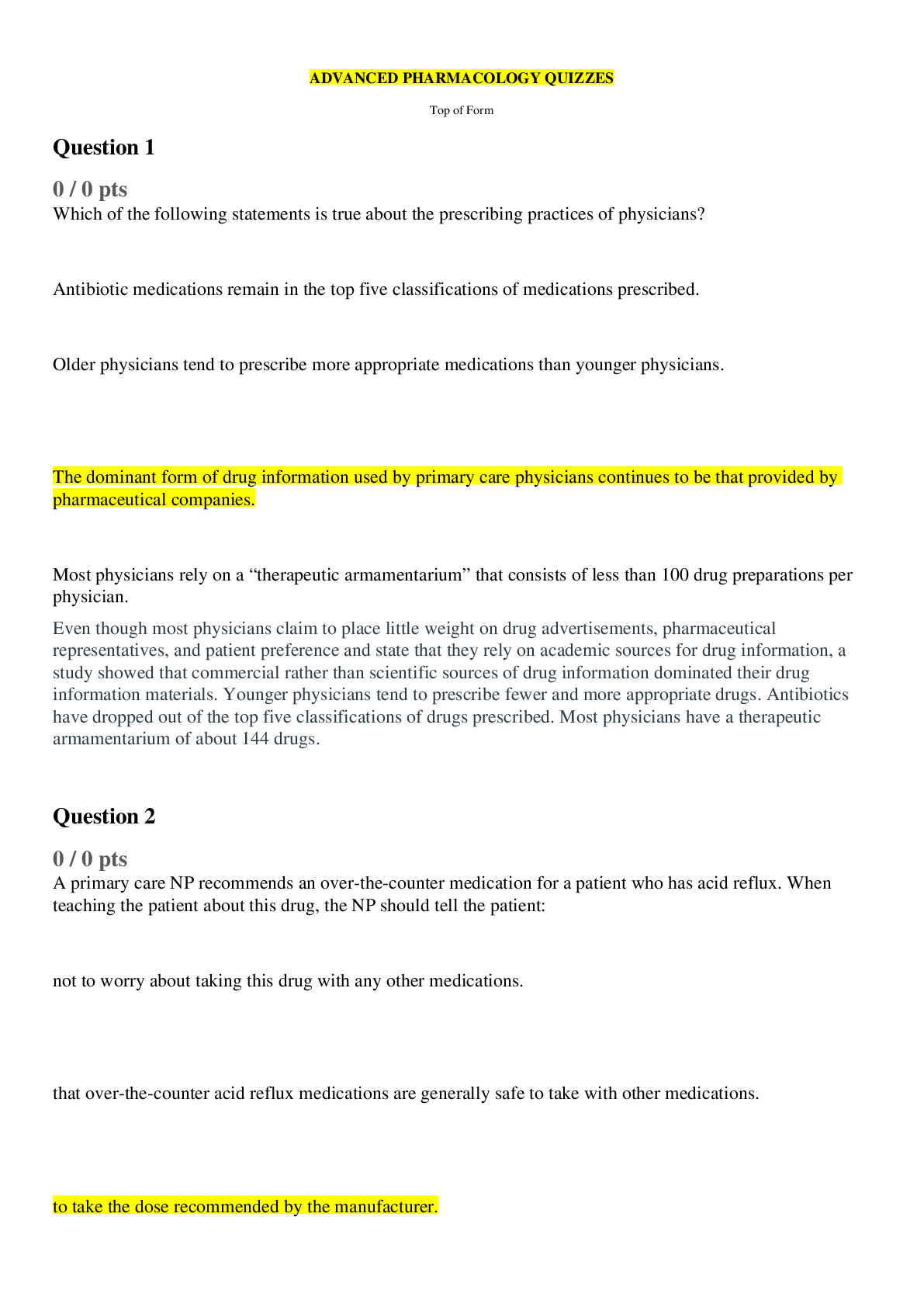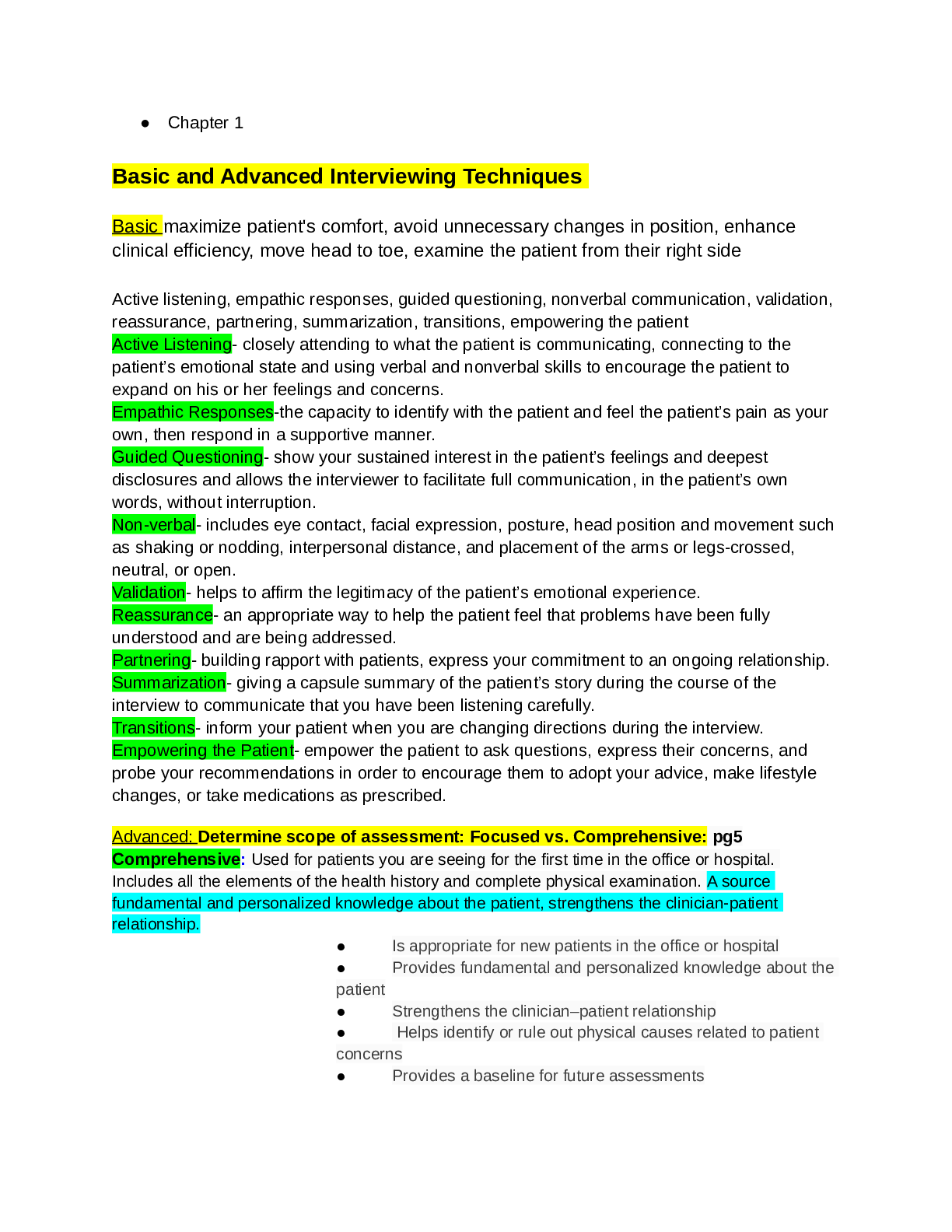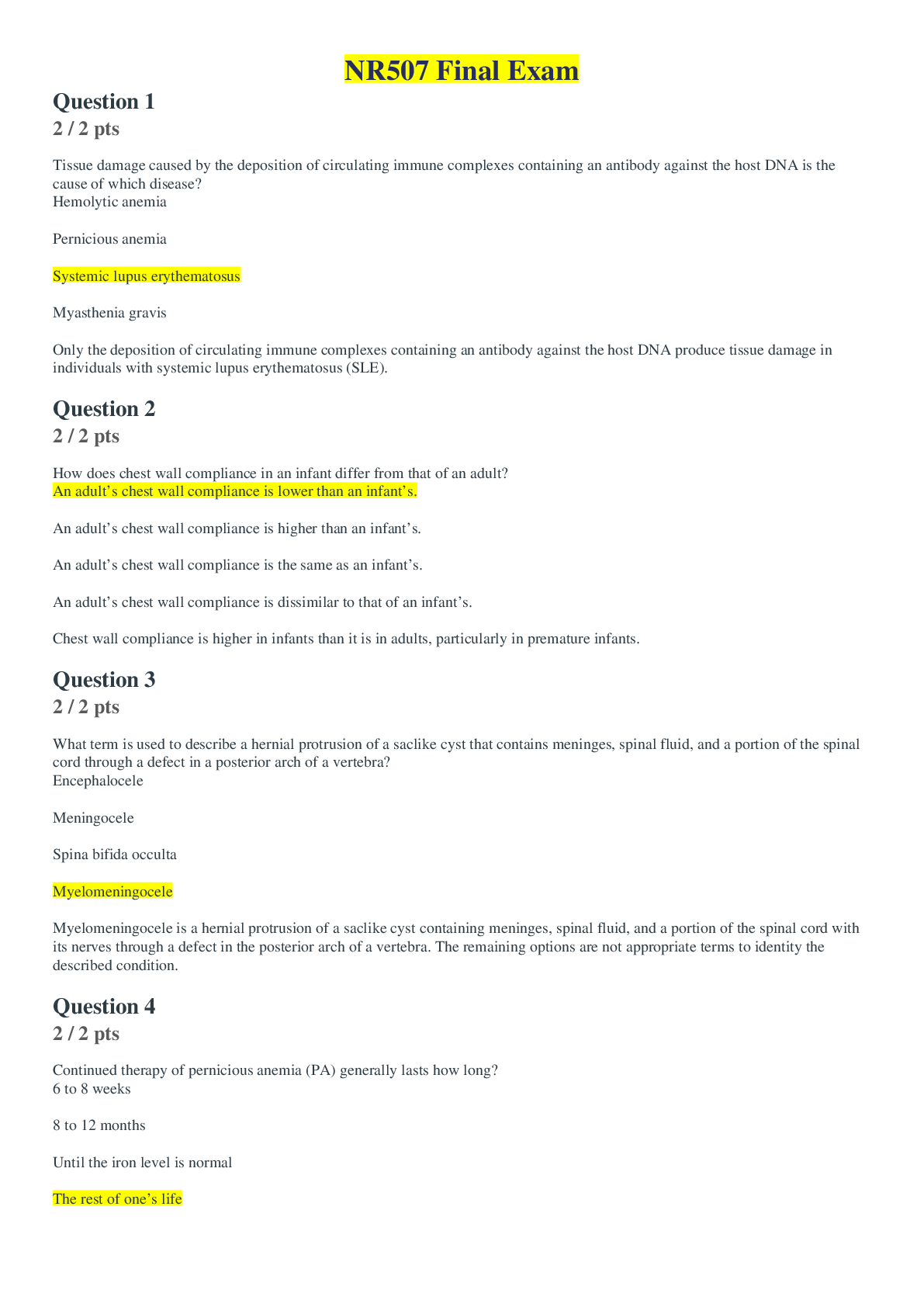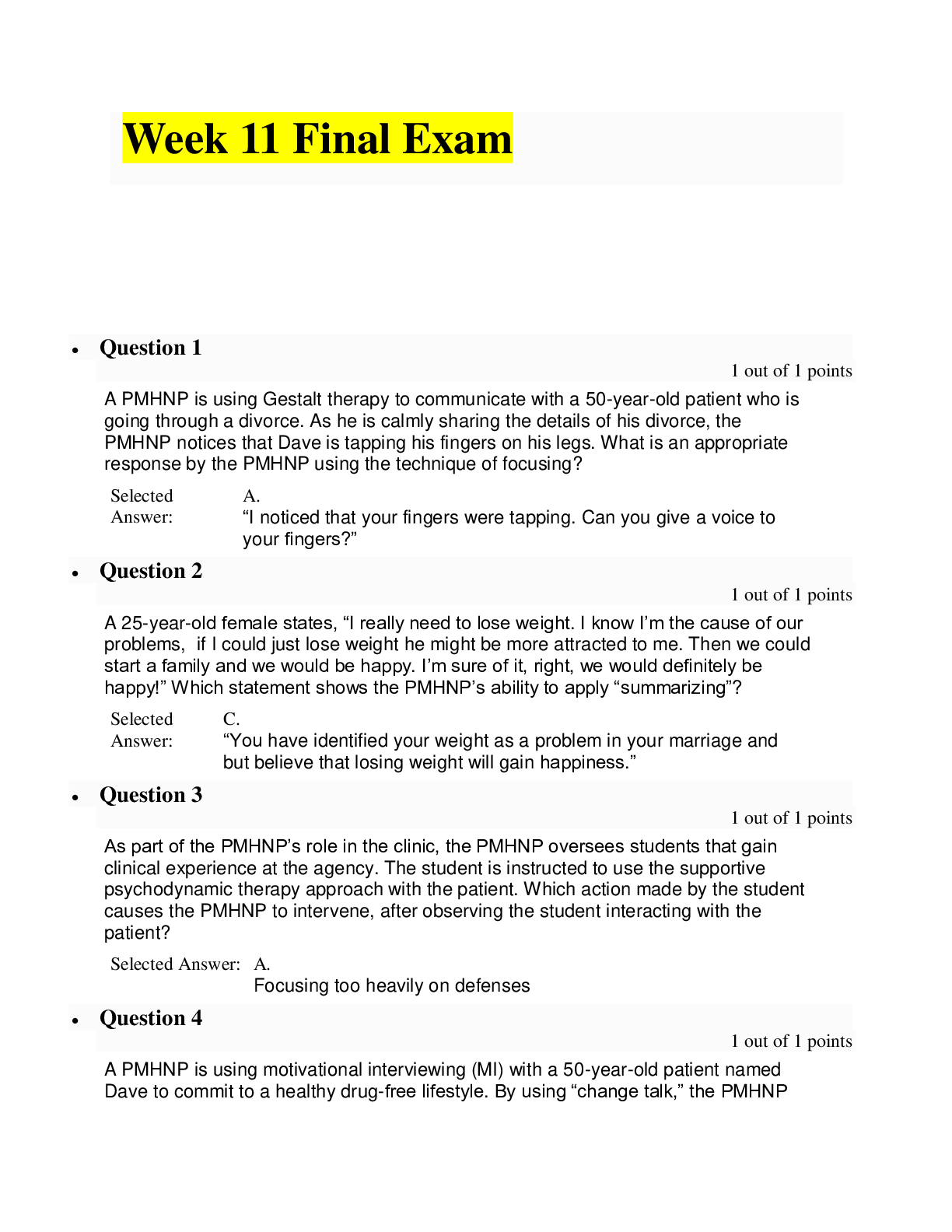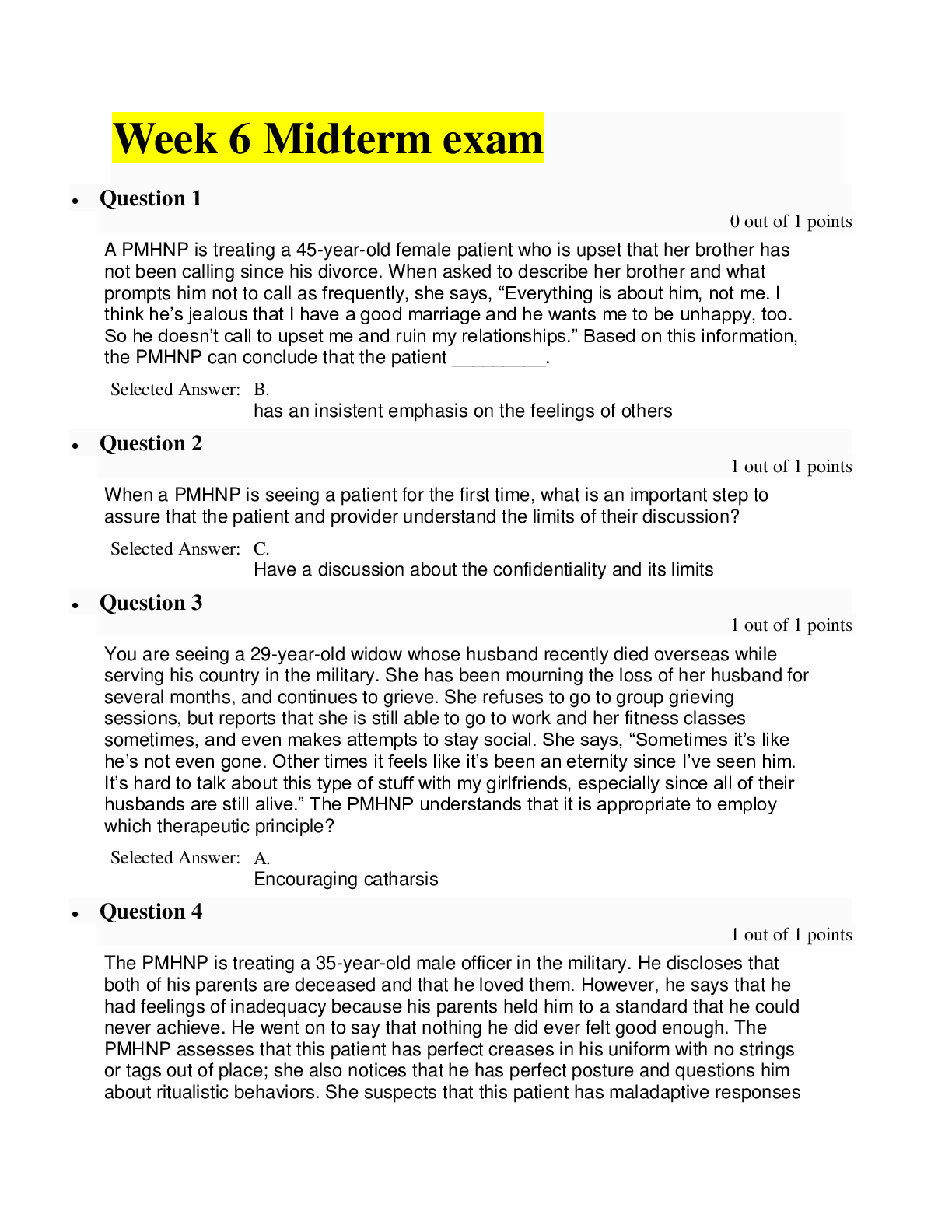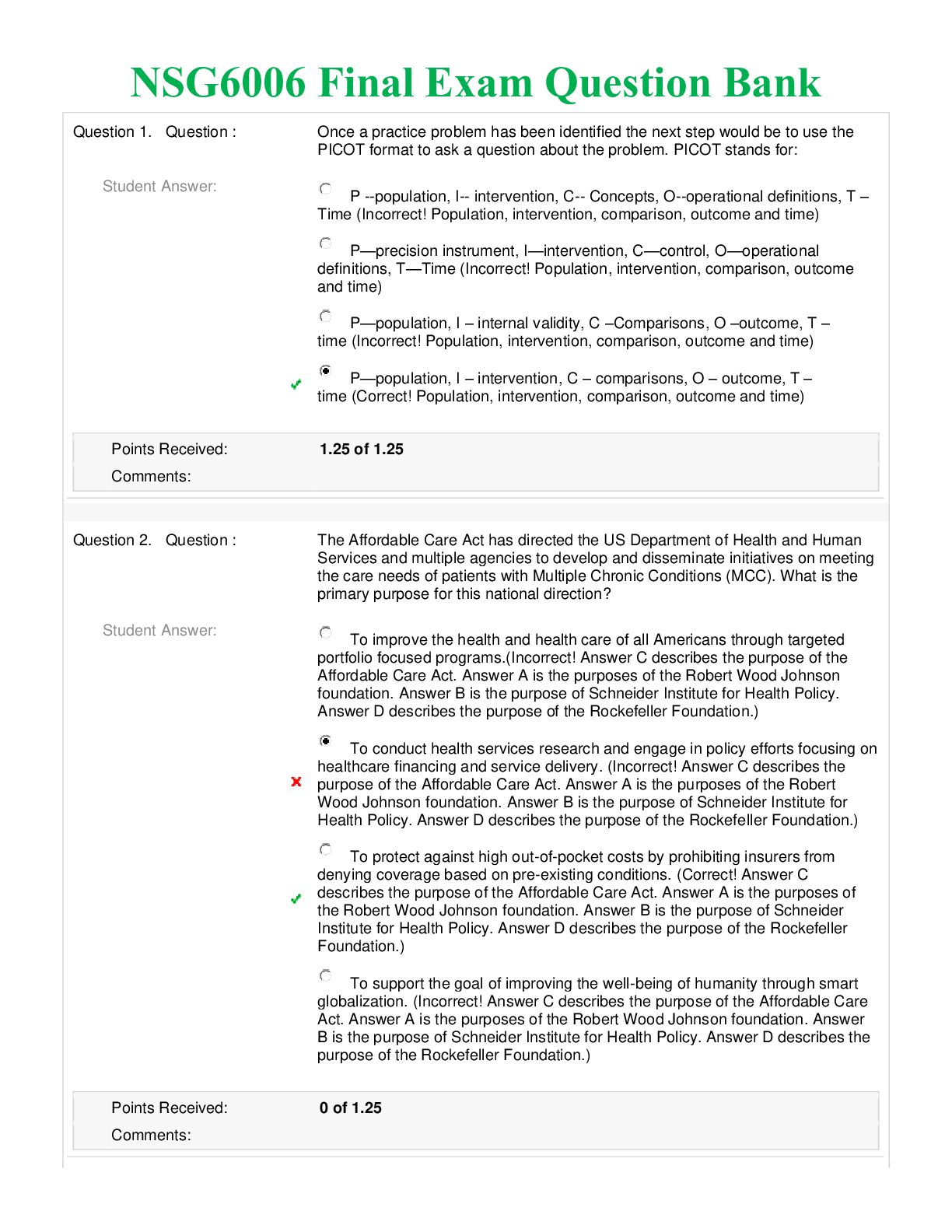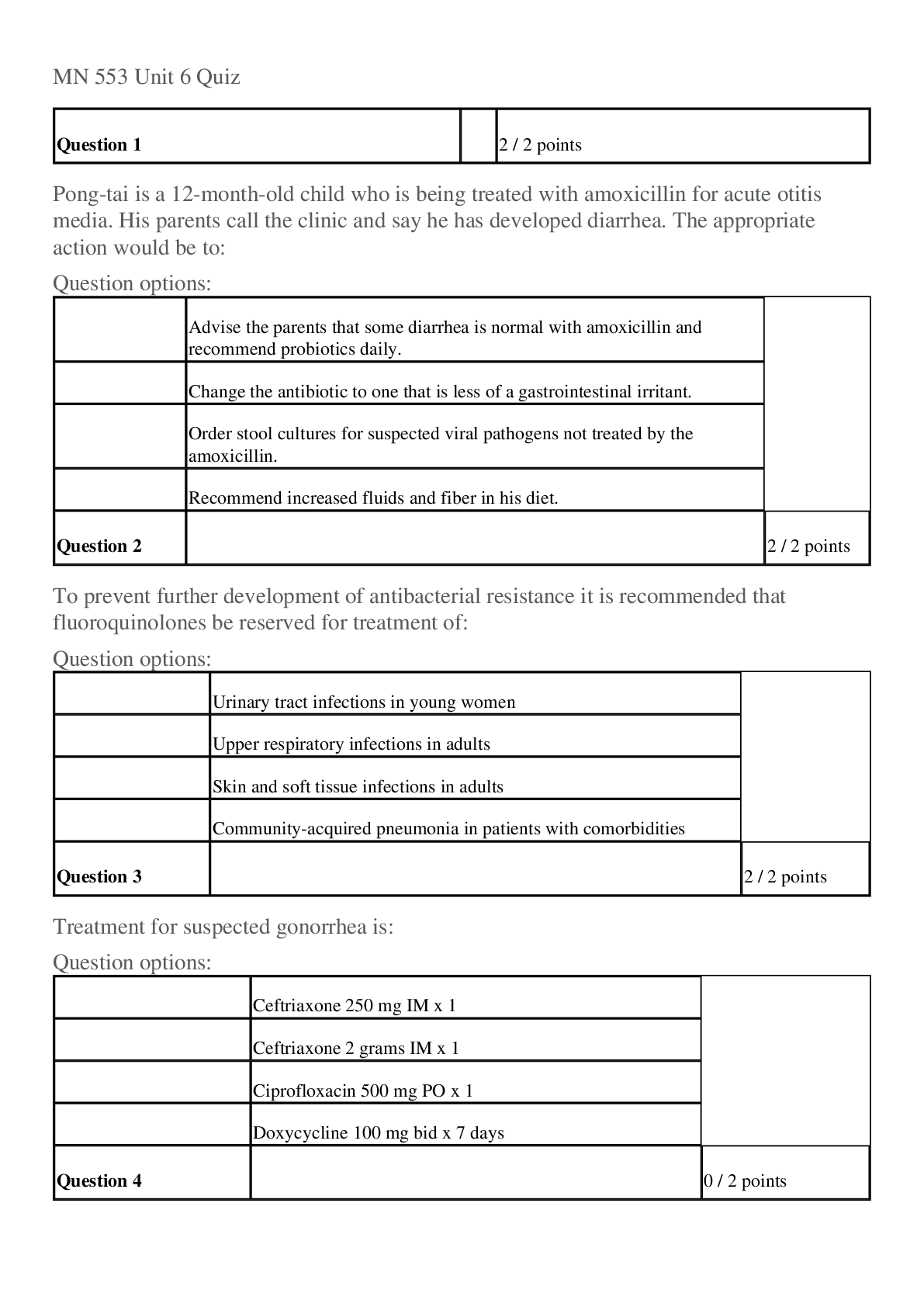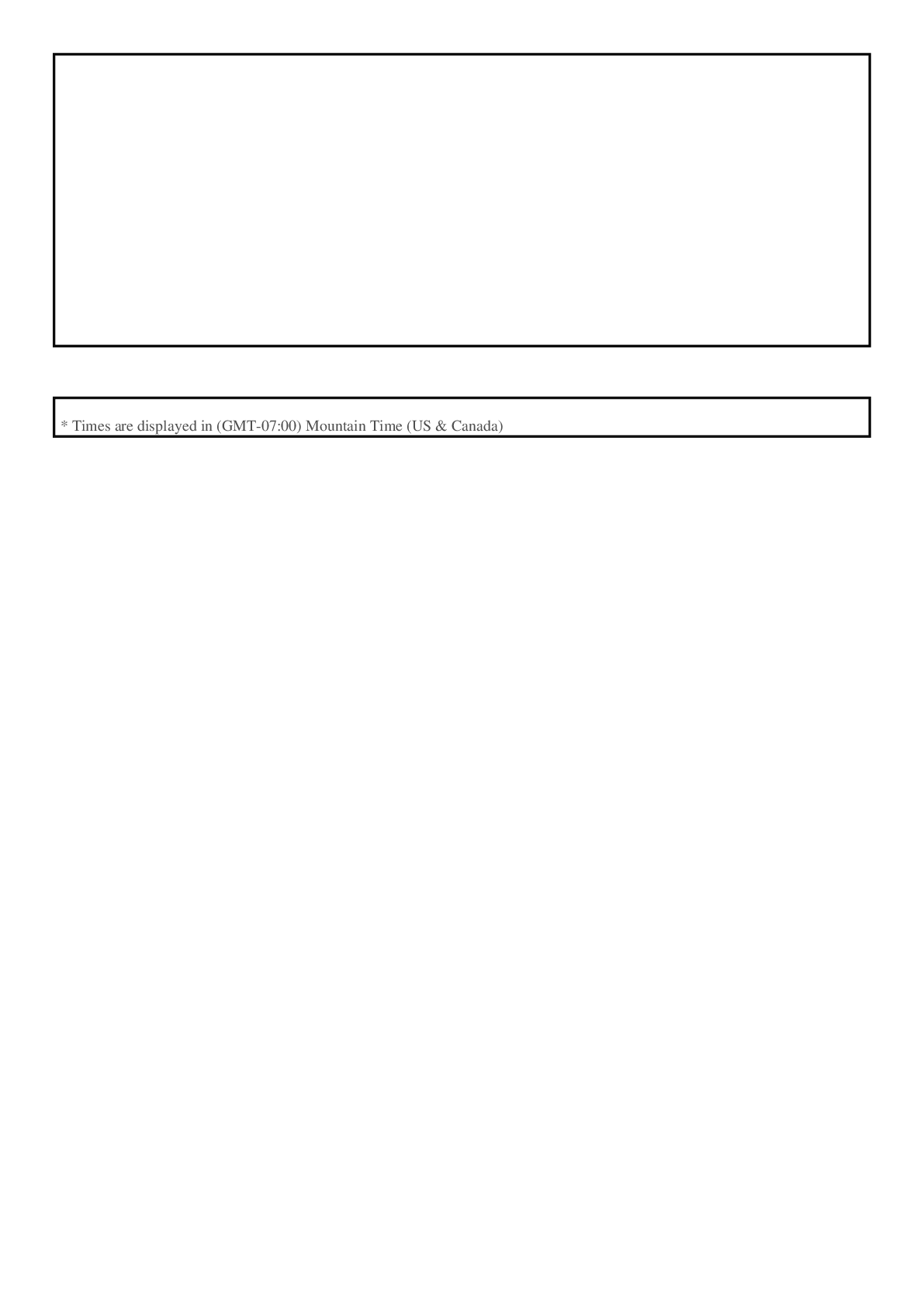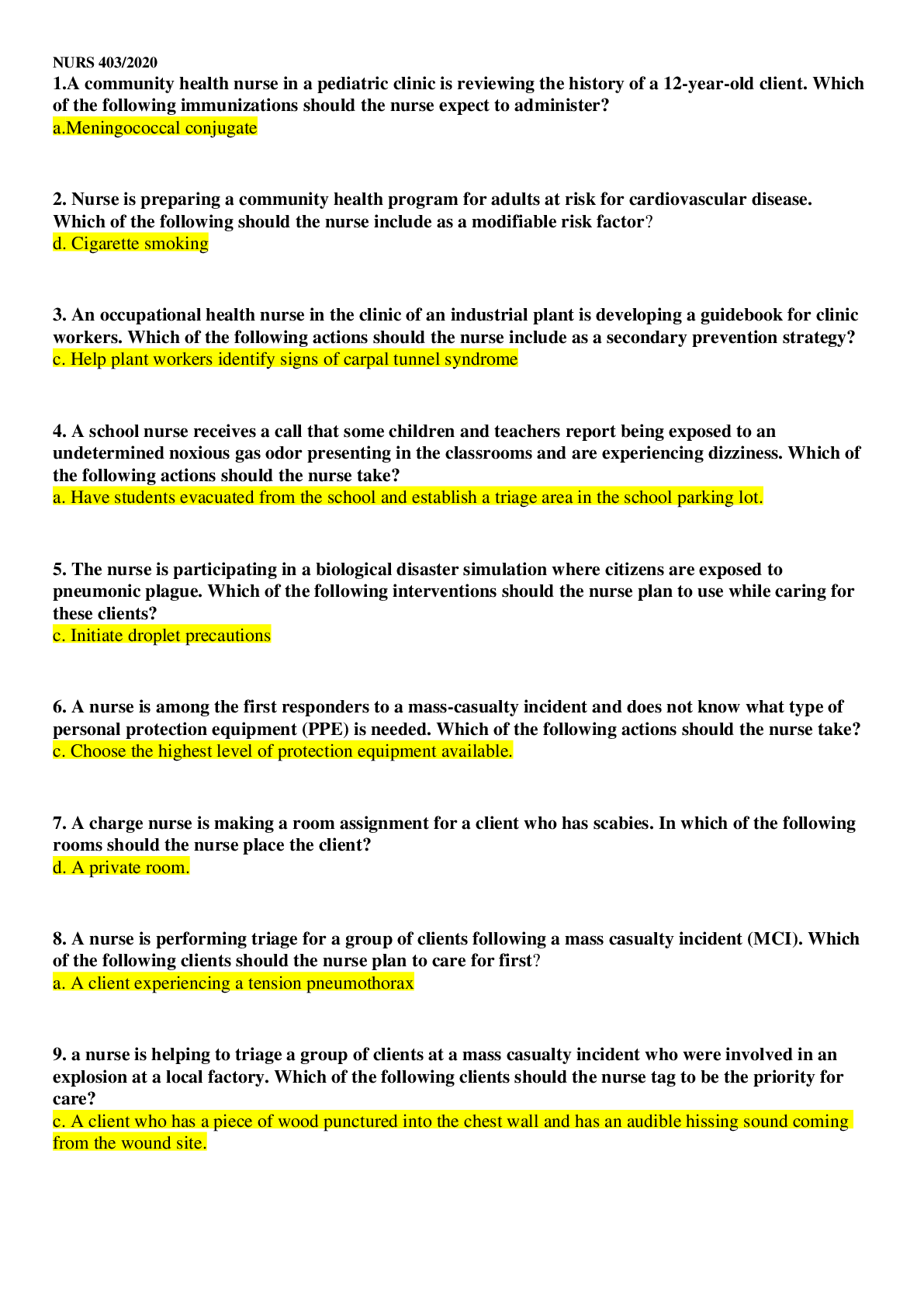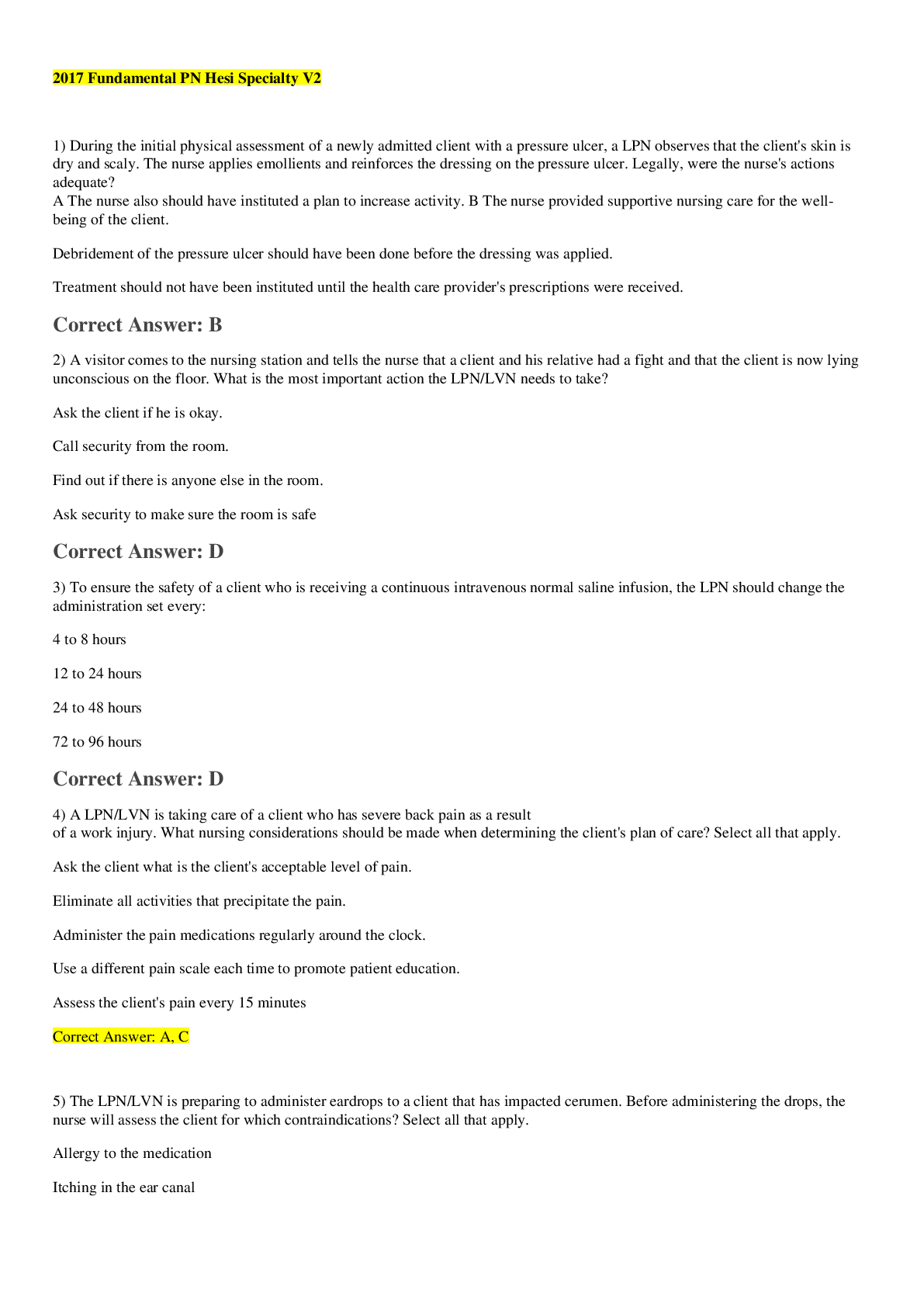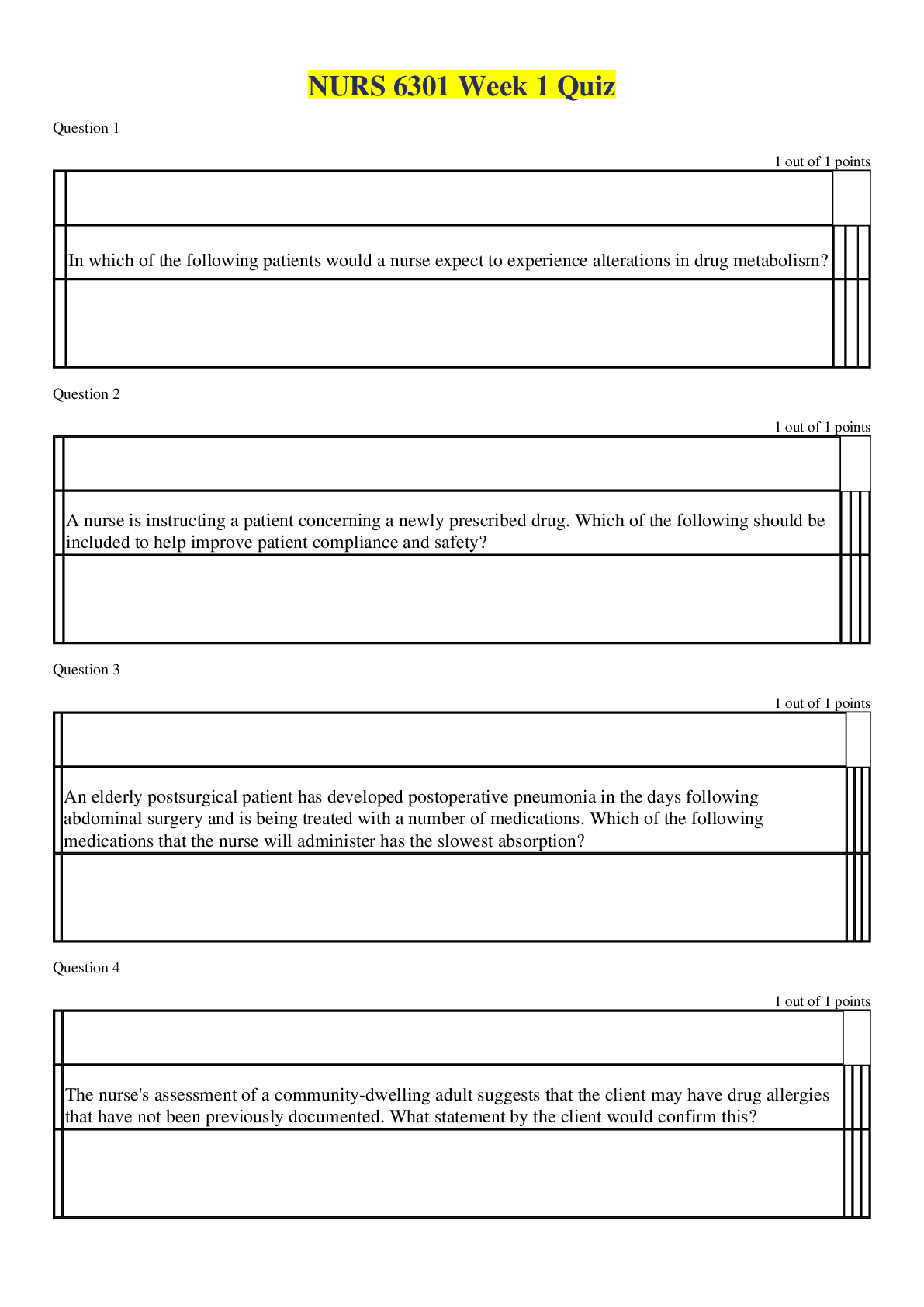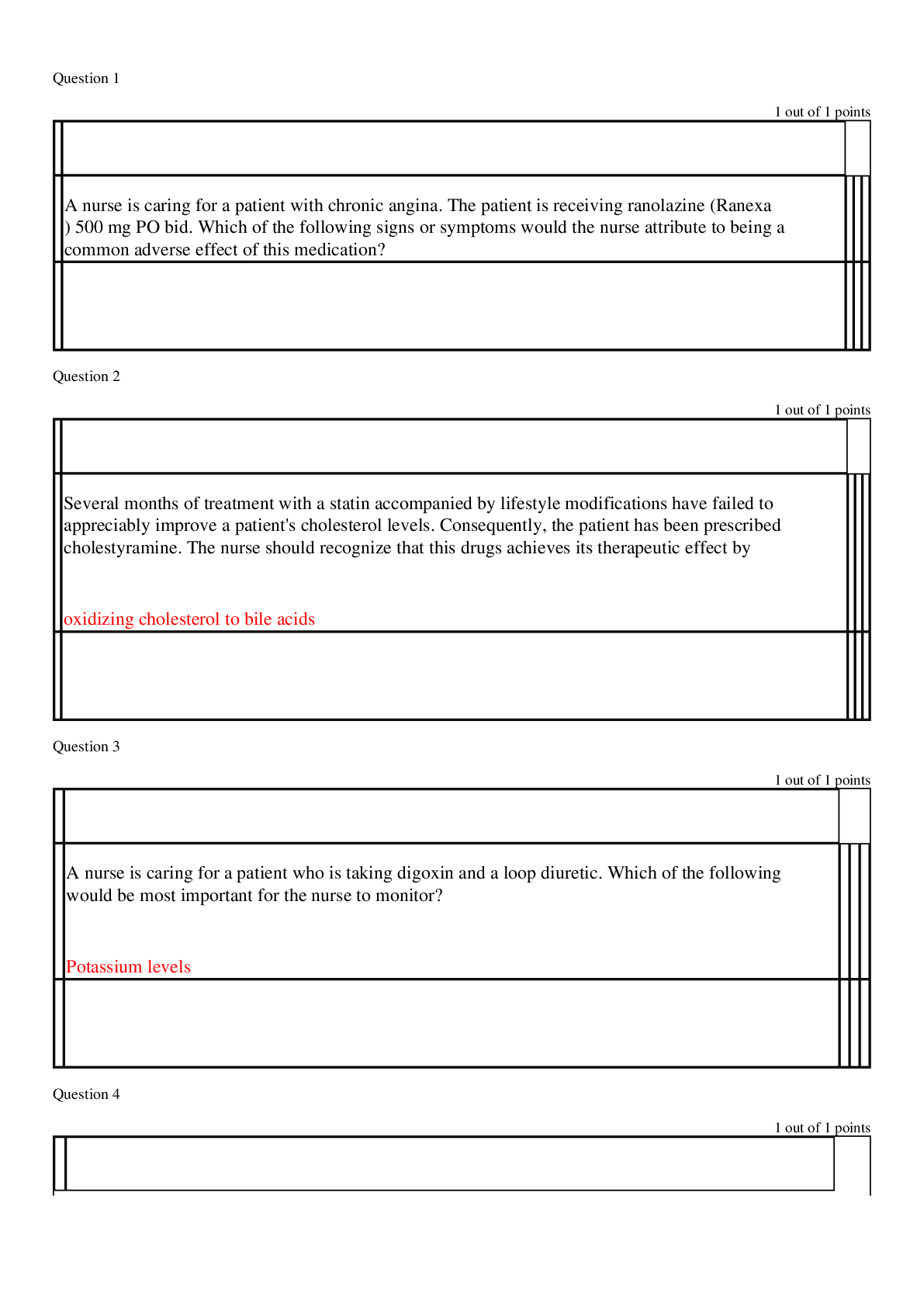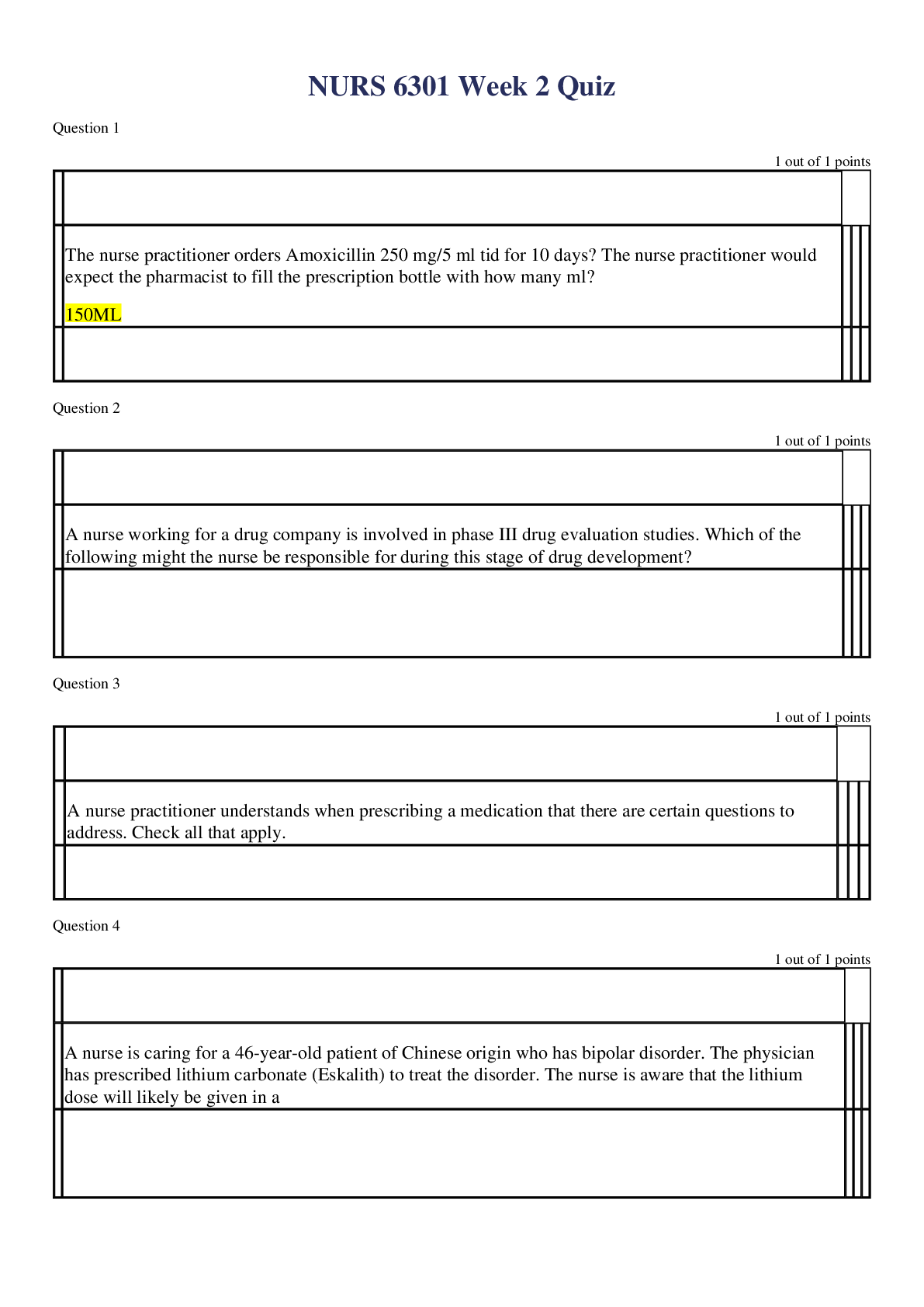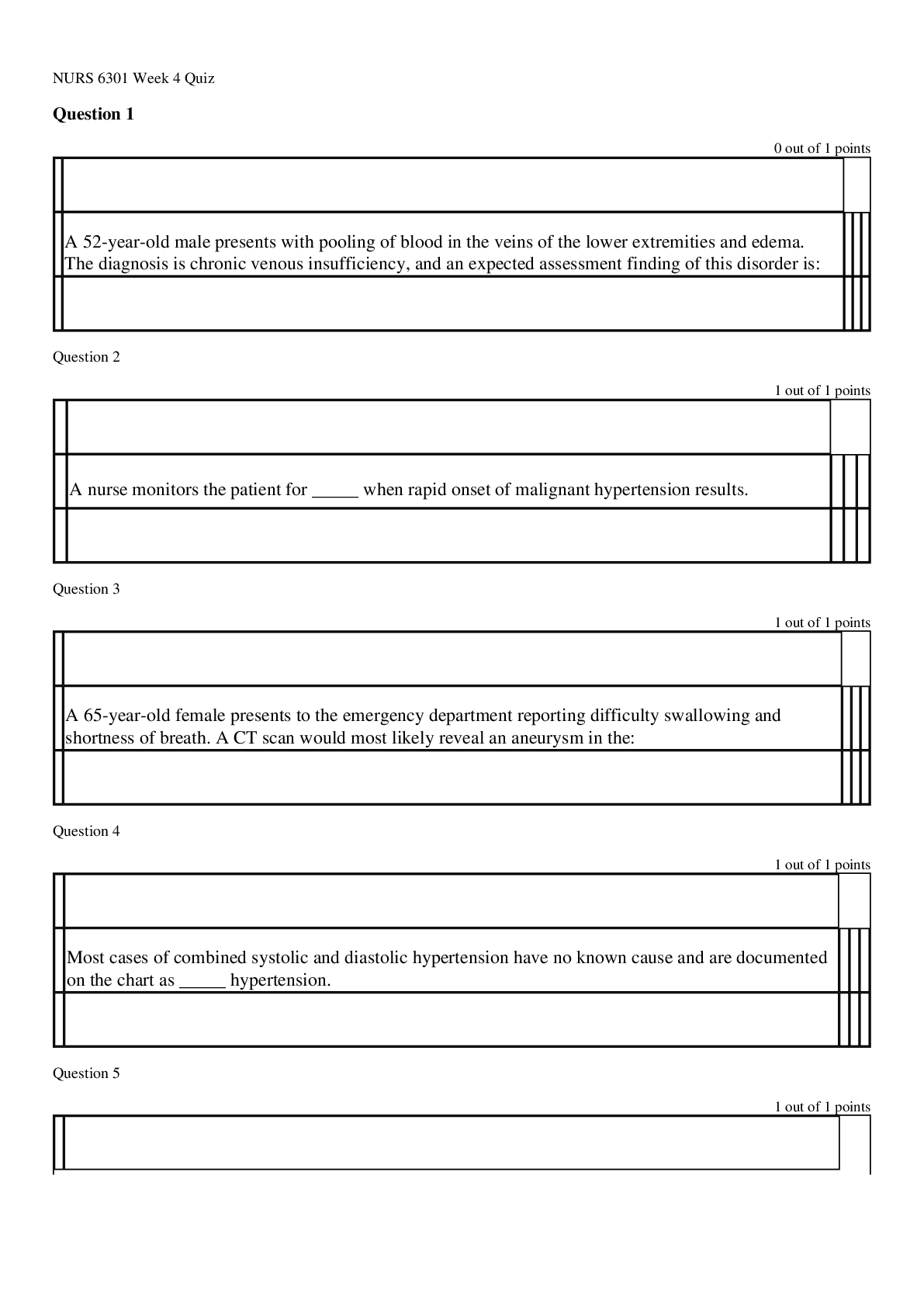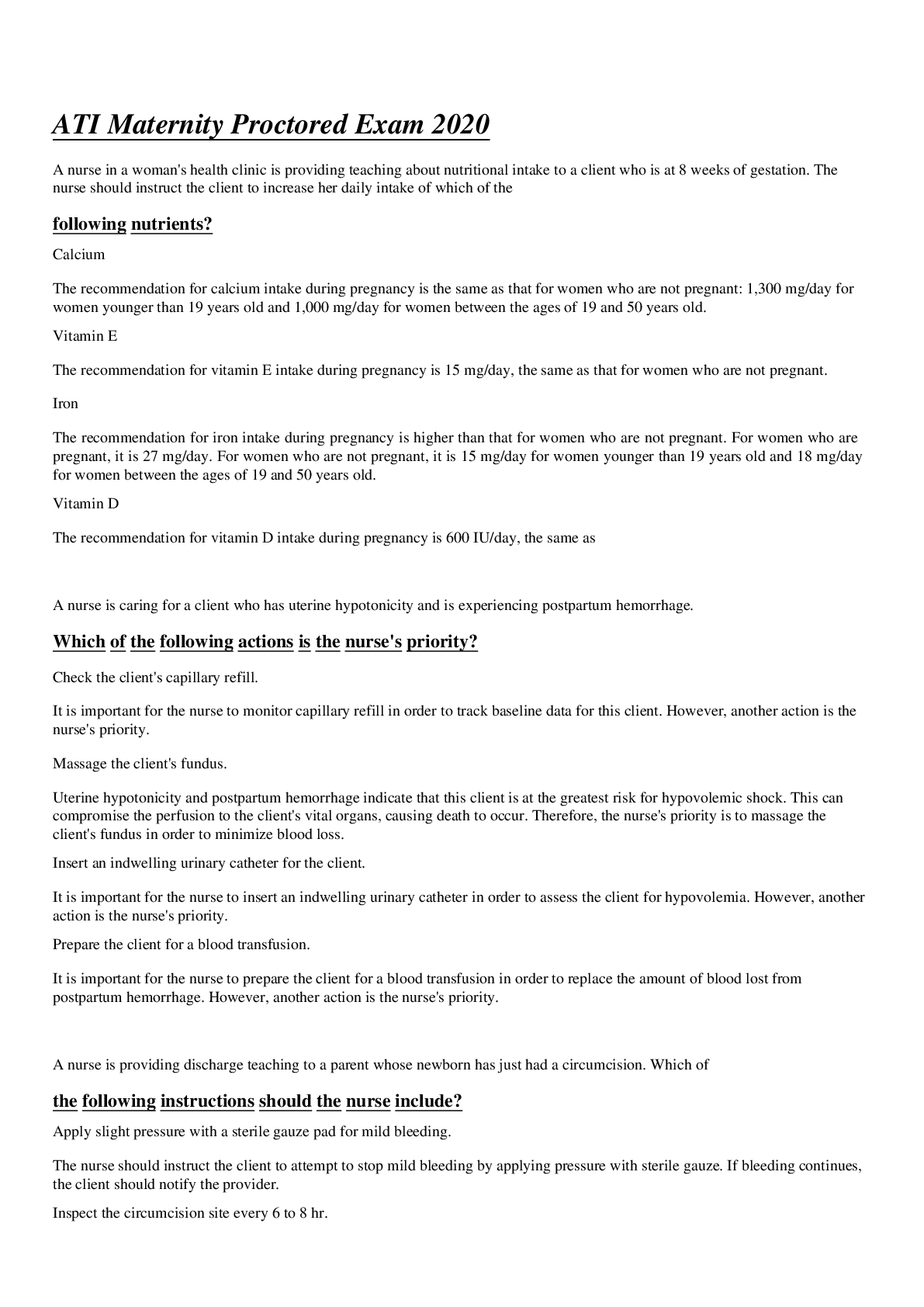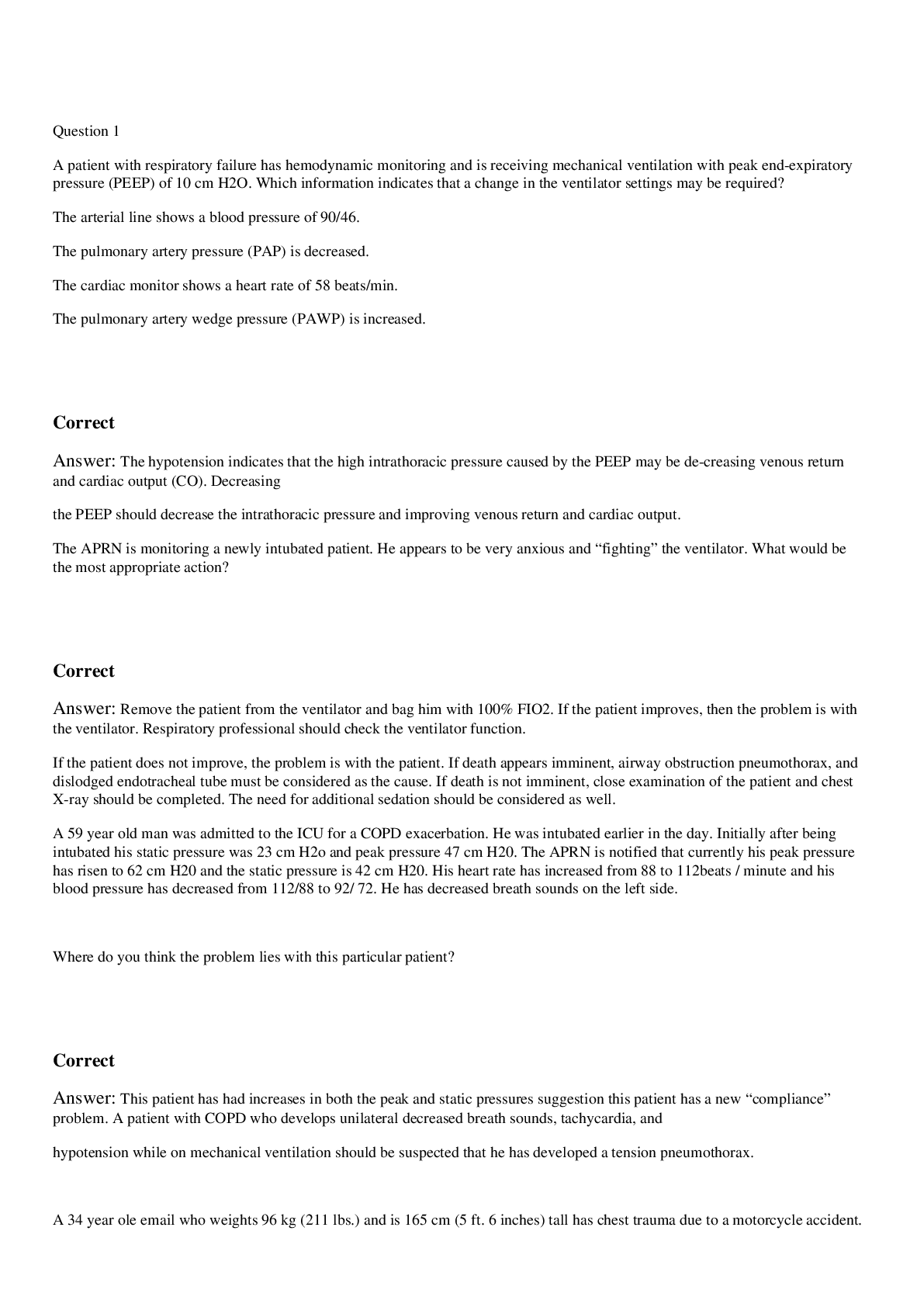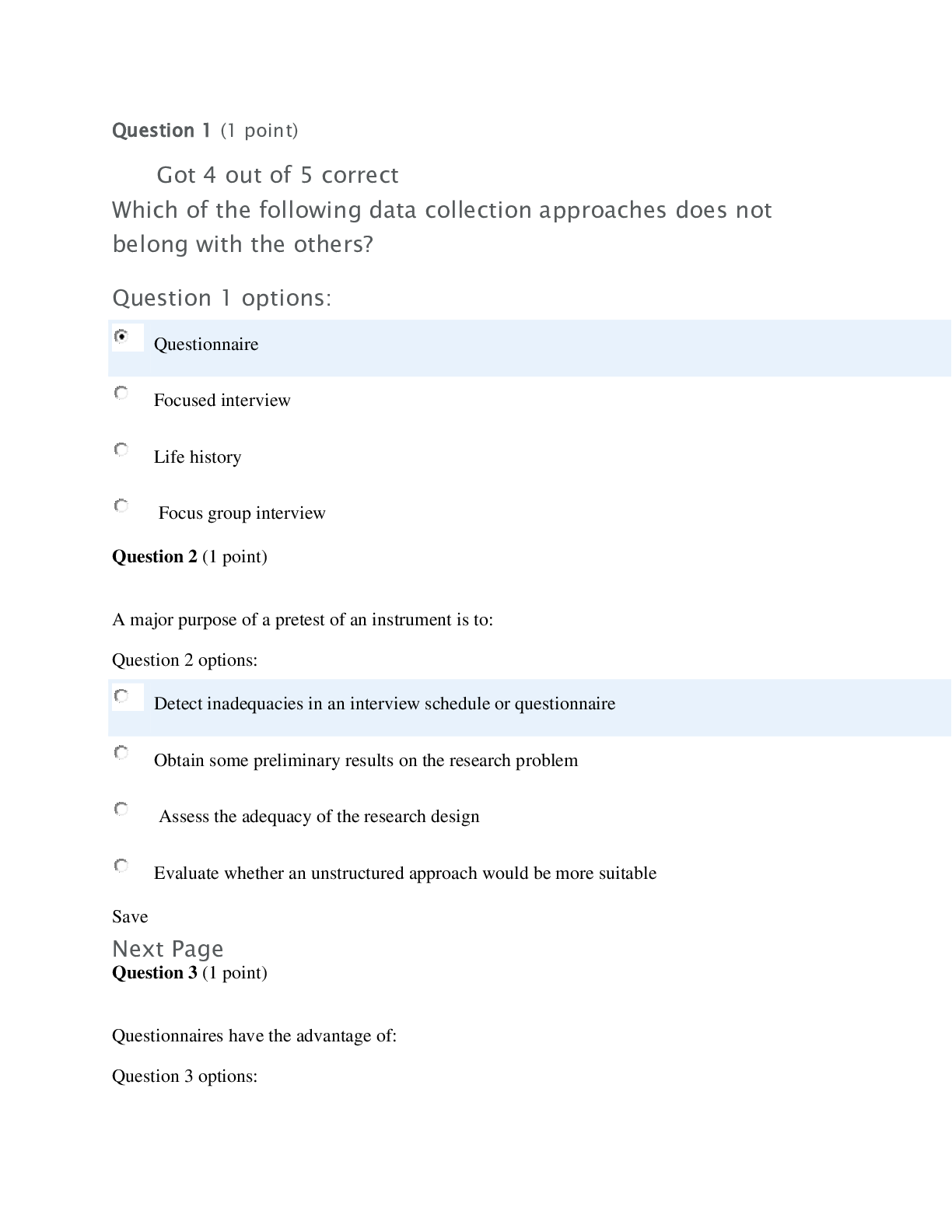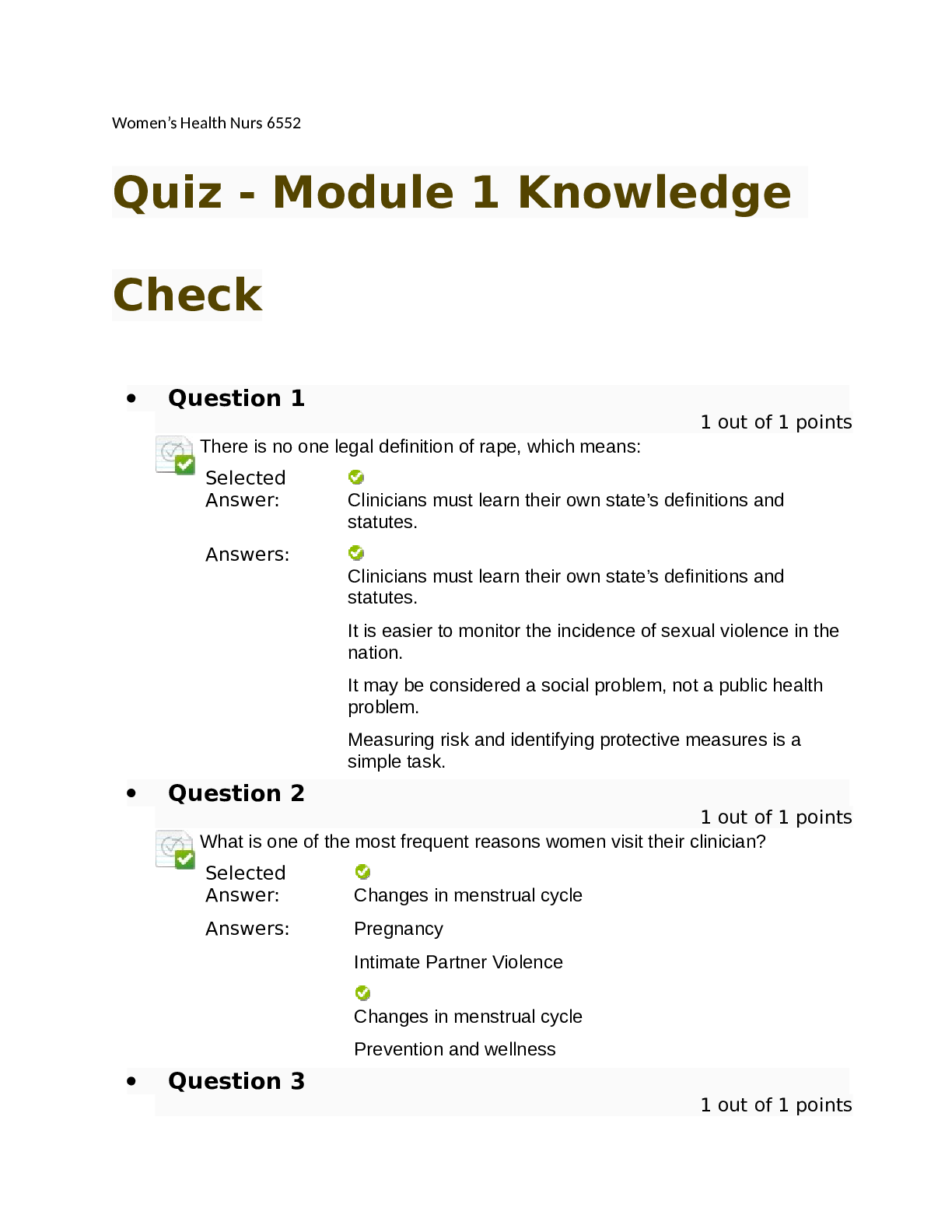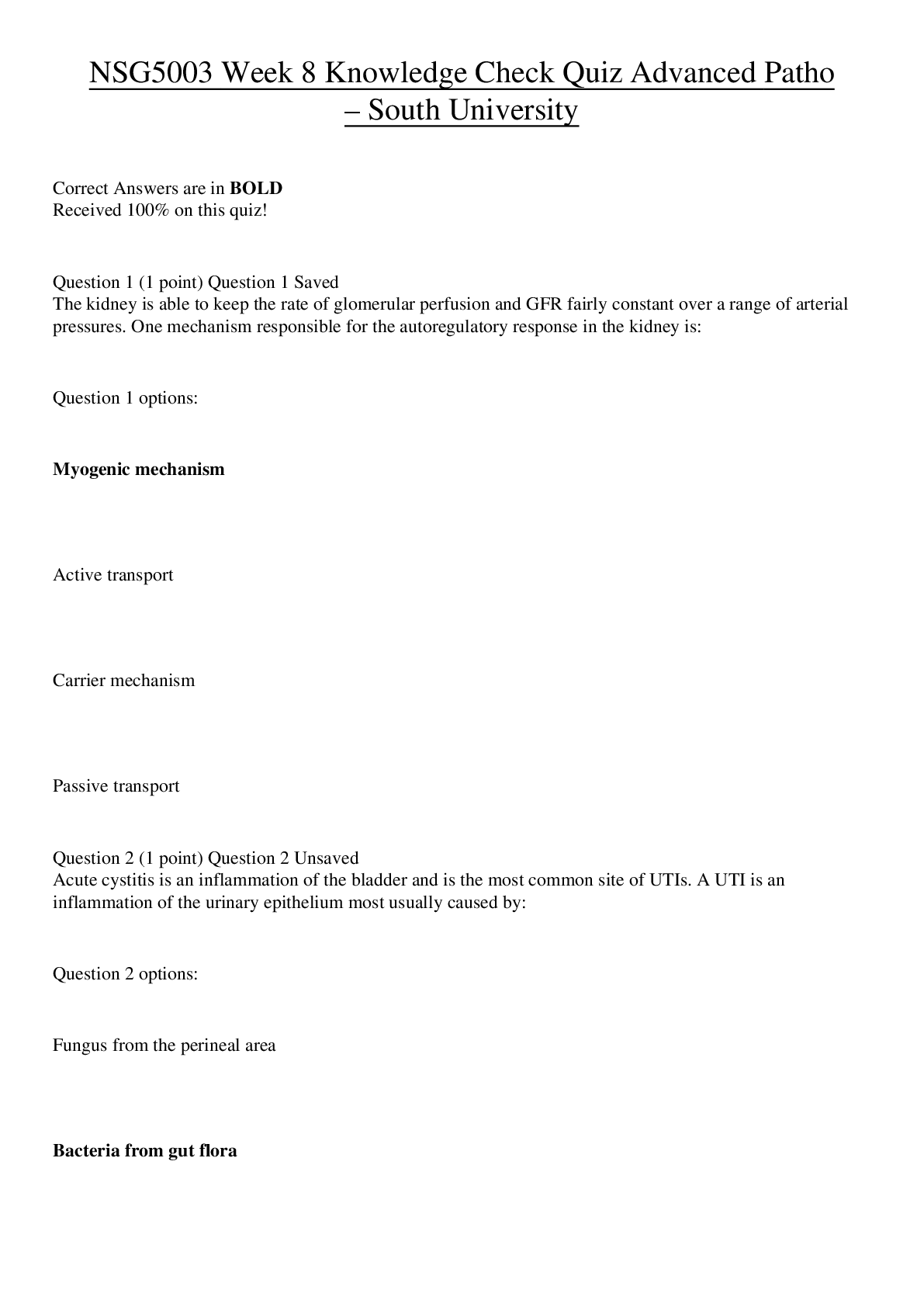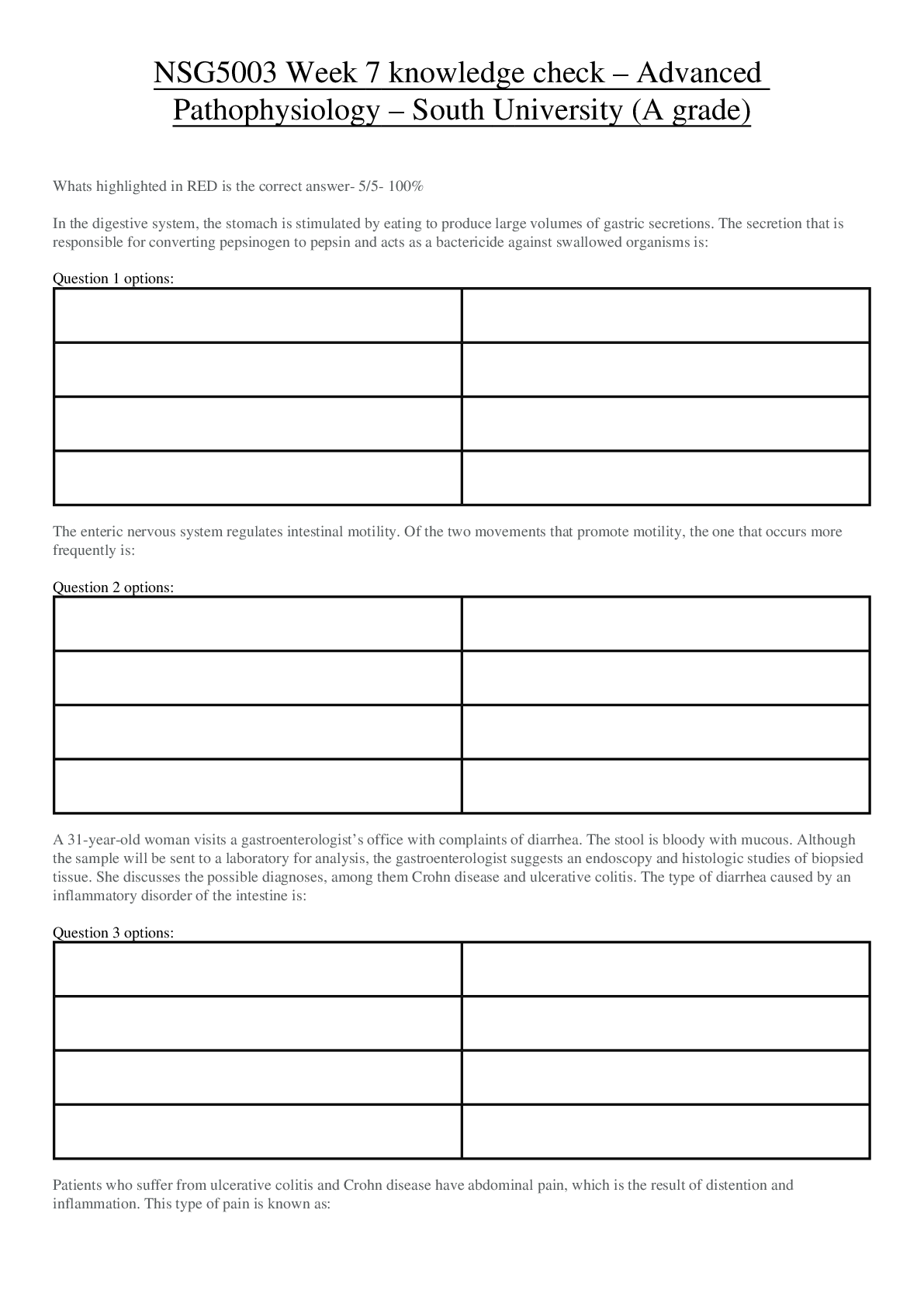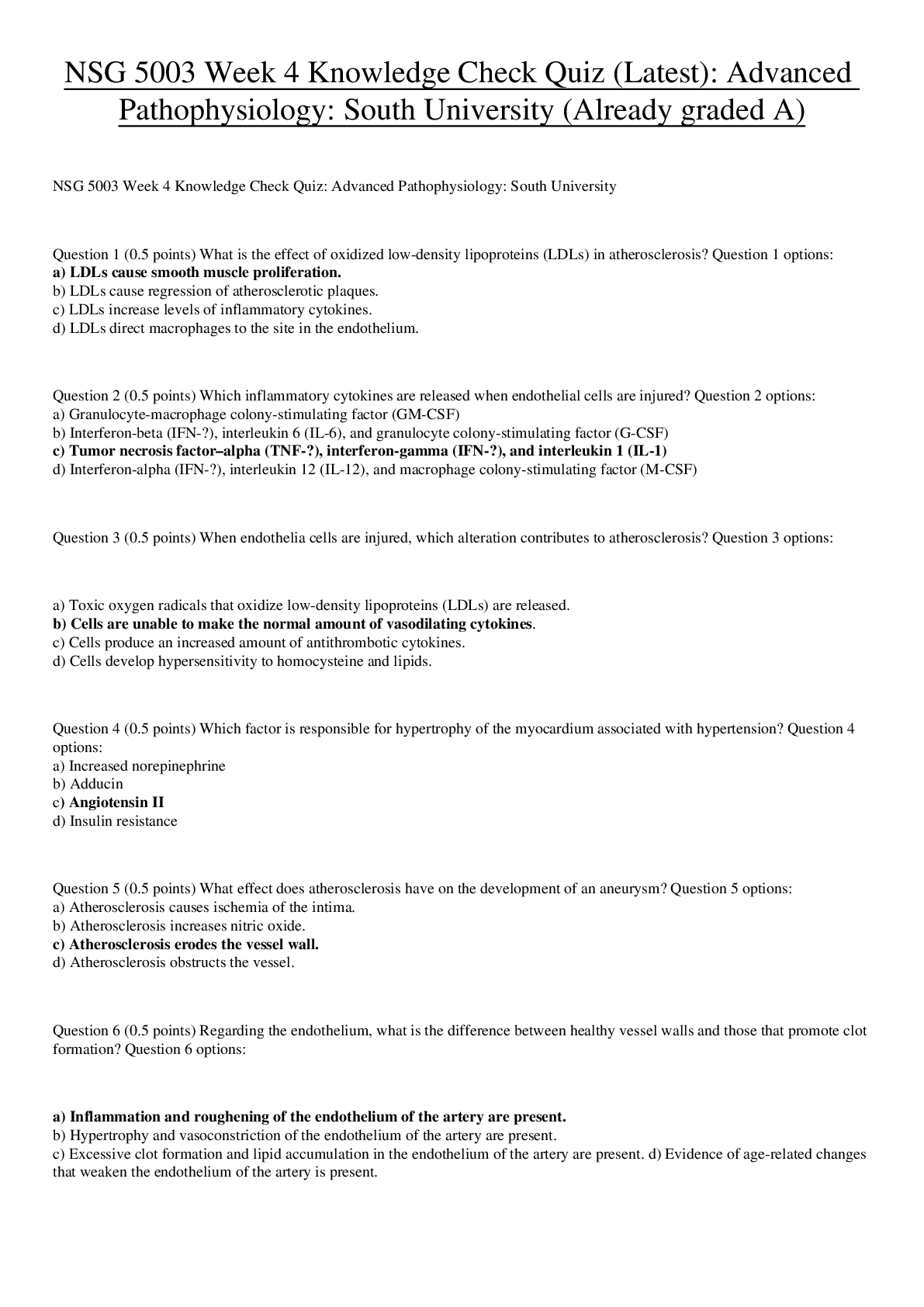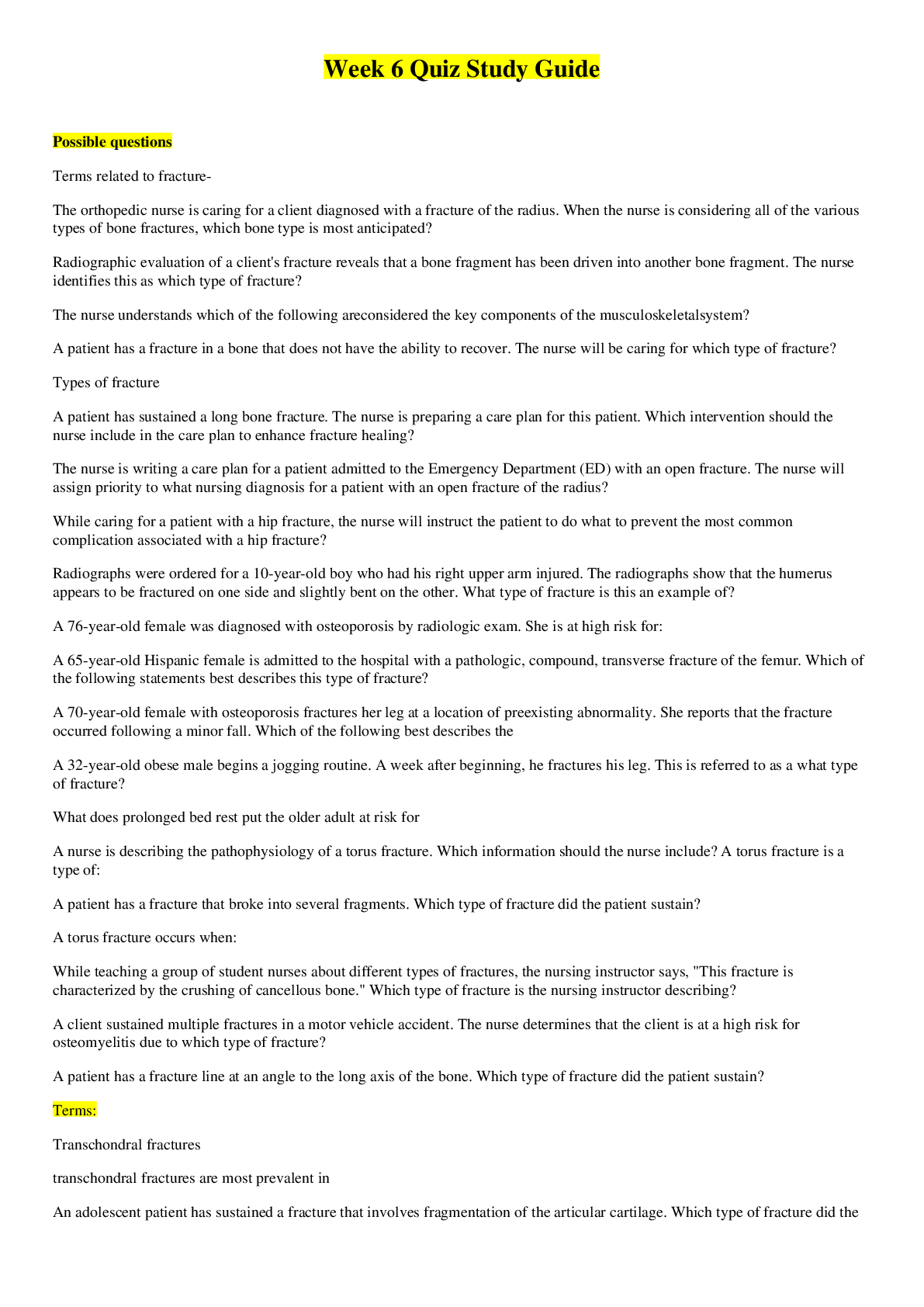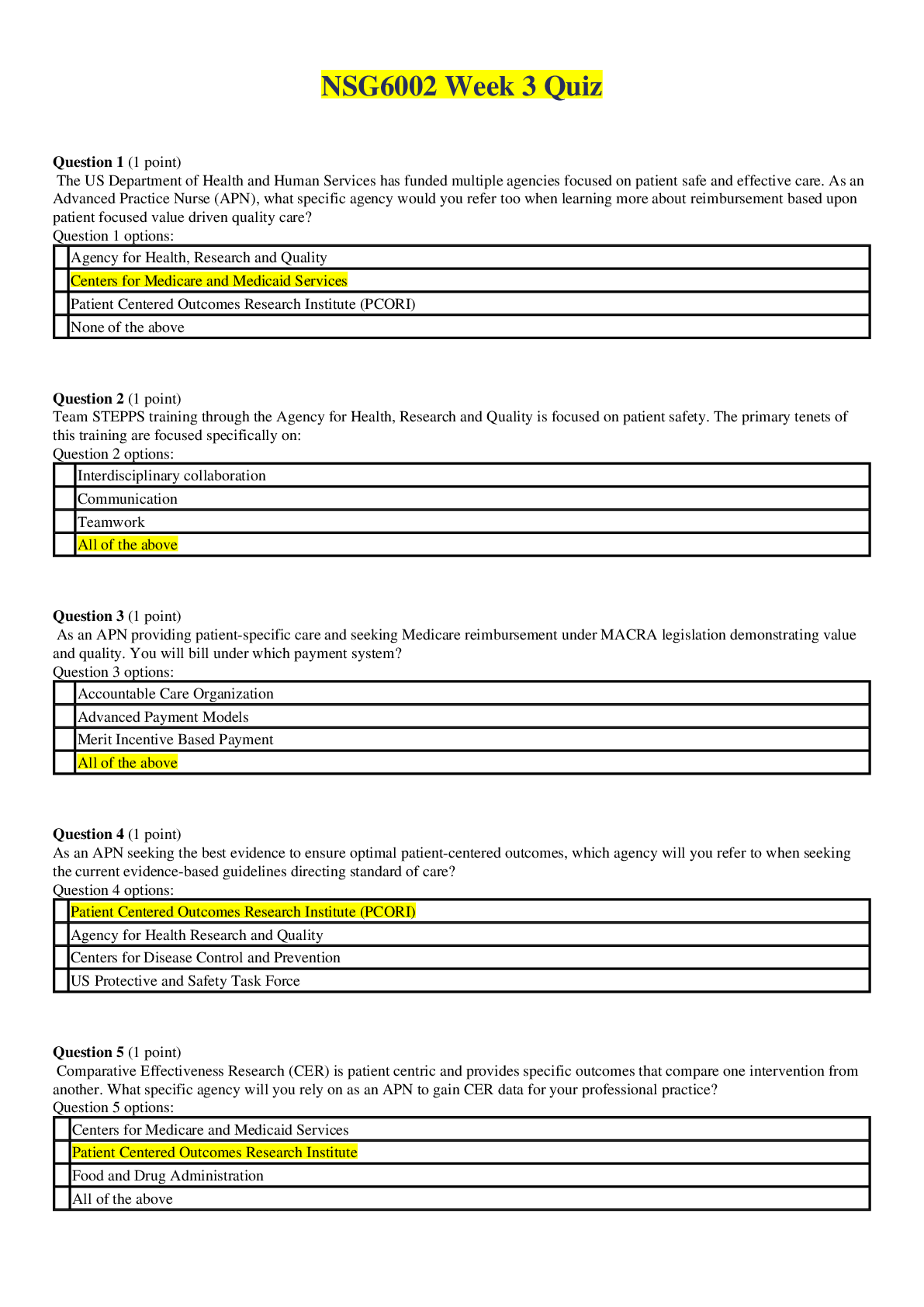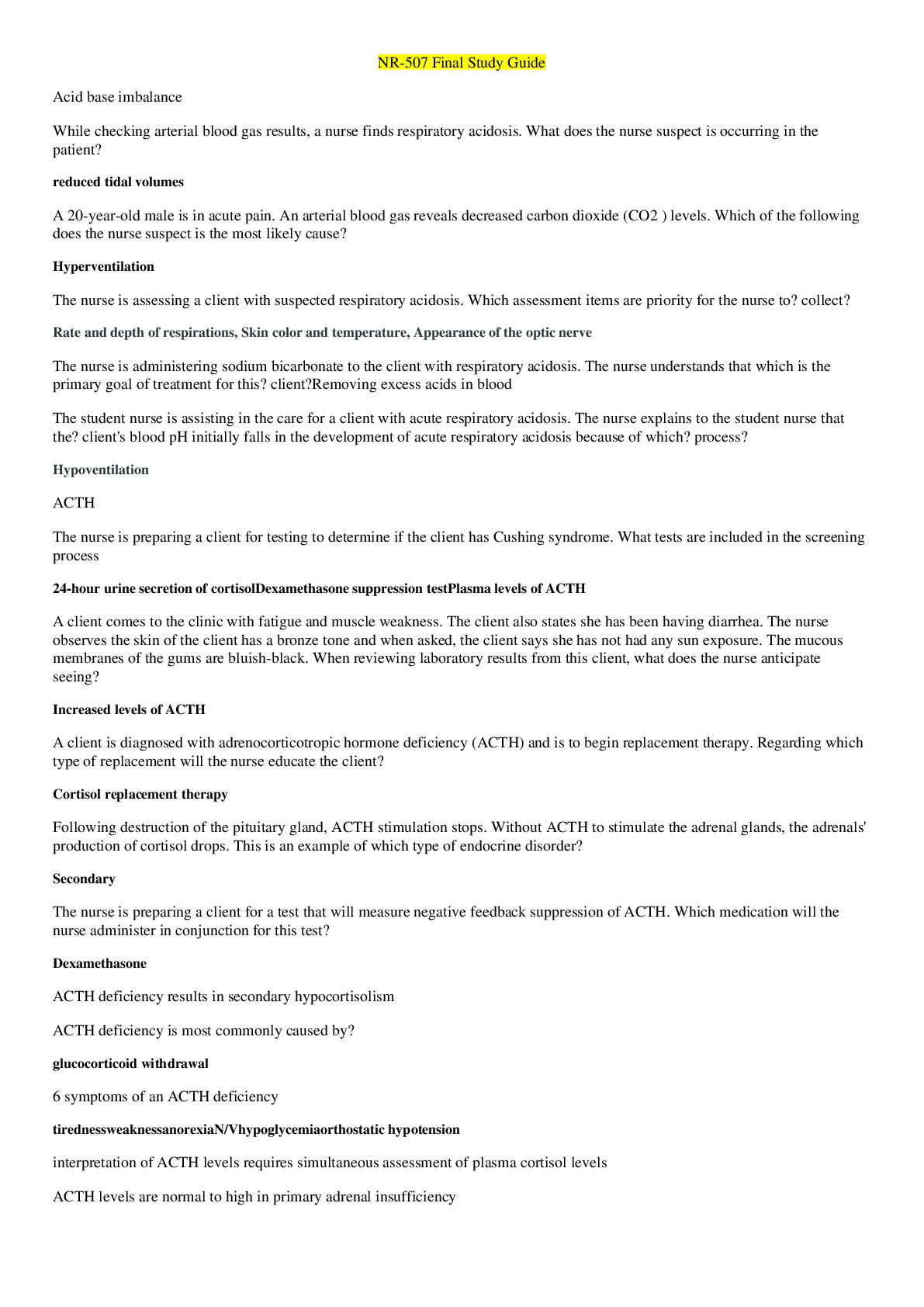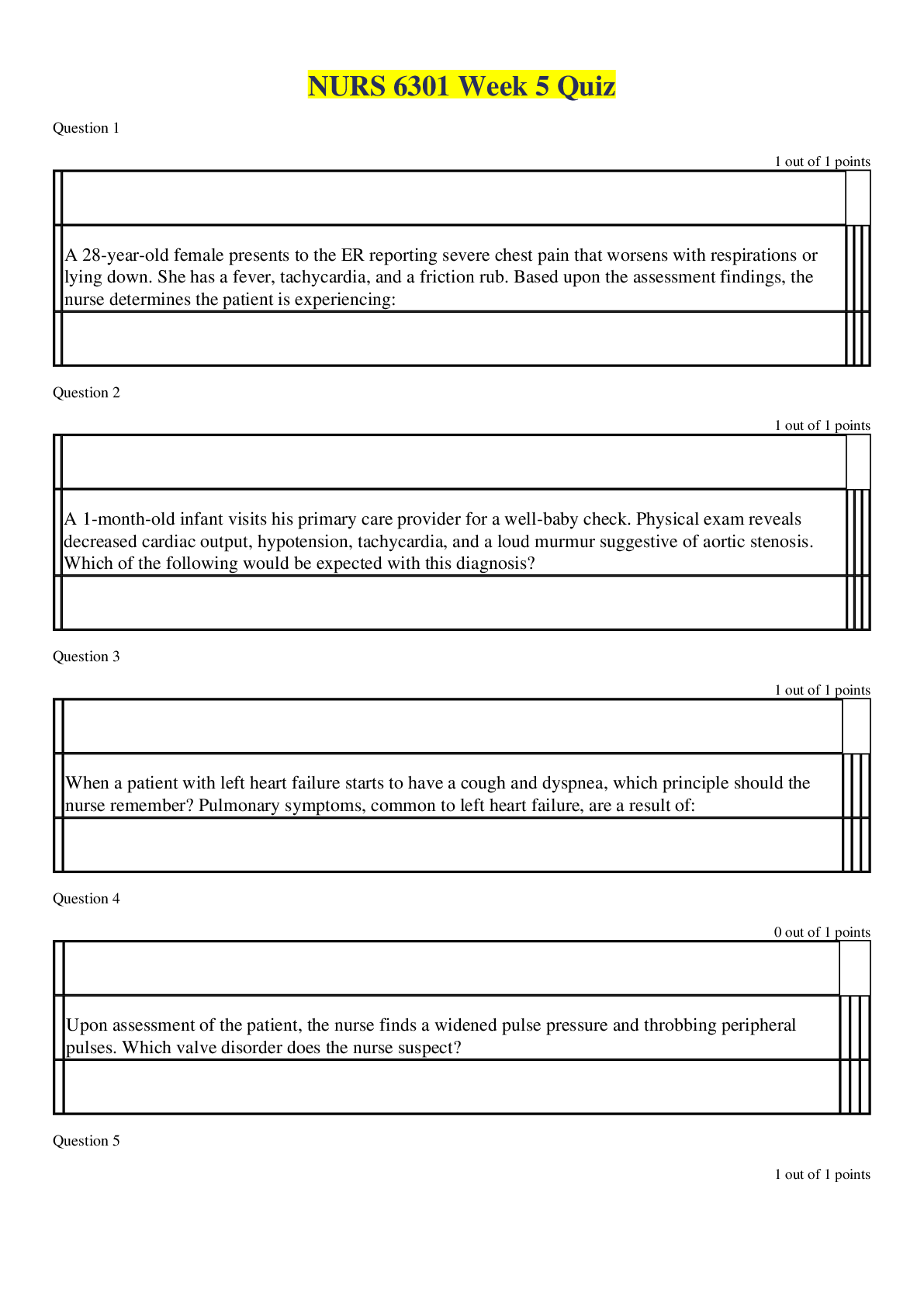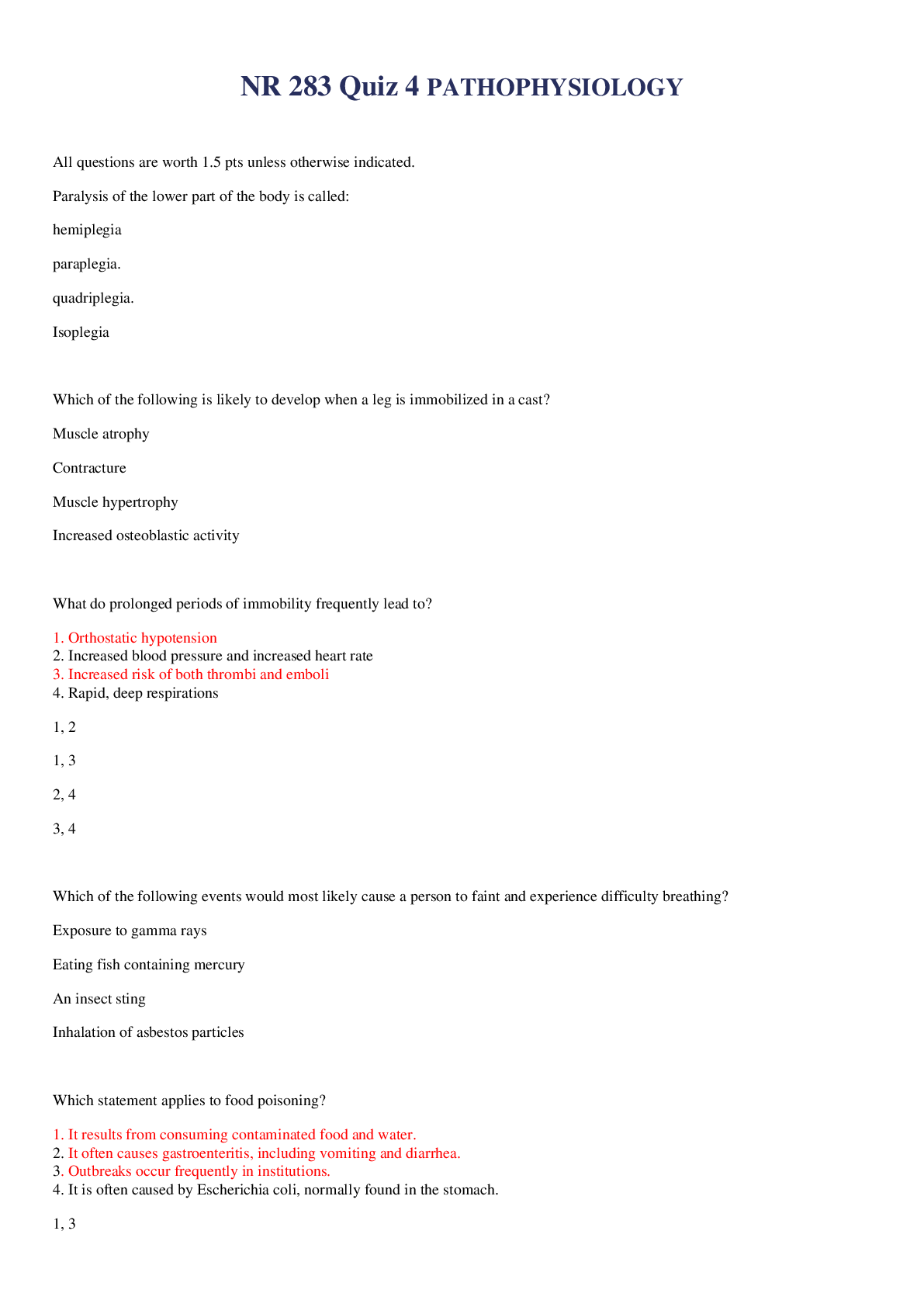*NURSING > EXAM > NSG5003 Week 7 Knowledge Check Quiz / NSG 5003 Week 7 Knowledge Check Quiz (Latest, 2020): South Uni (All)
NSG5003 Week 7 Knowledge Check Quiz / NSG 5003 Week 7 Knowledge Check Quiz (Latest, 2020): South University ( Verified Answers , Download to Score A)
Document Content and Description Below
NSG5003 Week 7 Knowledge Check Quiz / NSG 5003 Week 7 Knowledge Check Quiz: Advanced Pathophysiology: South University South University NSG5003 Week 7 Knowledge Check Quiz: Advanced Pathophysiology Qu... estion 1 (1 point) In the digestive system, the stomach is stimulated by eating to produce large volumes of gastric secretions. The secretion that is responsible for converting pepsinogen to pepsin and acts as a bactericide against swallowed organisms is: Question 1 options: A) Gastroferrin B) Hydrochloric acid C) Intrinsic factor D) Chymotrypsin Save Question 2 (1 point) The enteric nervous system regulates intestinal motility. Of the two movements that promote motility, the one that occurs more frequently is: Question 2 options: A) Segmentation B) Segmentation C) Vagal stimulation D) Neural reflex Save Question 3 (1 point) A 31-year-old woman visits a gastroenterologist’s office with complaints of diarrhea.The stool is bloody with mucous. Although the sample will be sent to a laboratory for analysis, the gastroenterologist suggests an endoscopy and histologic studies of biopsied tissue. She discusses the possible diagnoses, among them Crohn disease and ulcerative colitis. The type of diarrhea caused by See the (expanded ) discussion grading rubric below the inflammatory disorder of the intestine is: Question 3 options: A) Secretory B) Small-volume C) Motility D) Large-volume Save Question 4 (1 point) Patients who suffer from ulcerative colitis and Crohn disease have abdominal pain, which is the result of distention and inflammation. This type of pain is known as: Question 4 options: A) Visceral B) Referred C) Referred D) Somatic Save Question 5 (1 point) With two major abnormalities in copper metabolism, diminished biliary excretion and failure to insert copper into the blood, a positive copper balance is present from birth in children with Wilson disease. The classic presentation of Wilson disease is a triad of neuromuscular abnormalities stemming from brain damage particularly in the: Question 5 options: A) Parietal lobe B) Basal ganglia C) Corpus callosum D) Insular cortex Save [Show More]
Last updated: 1 year ago
Preview 1 out of 4 pages
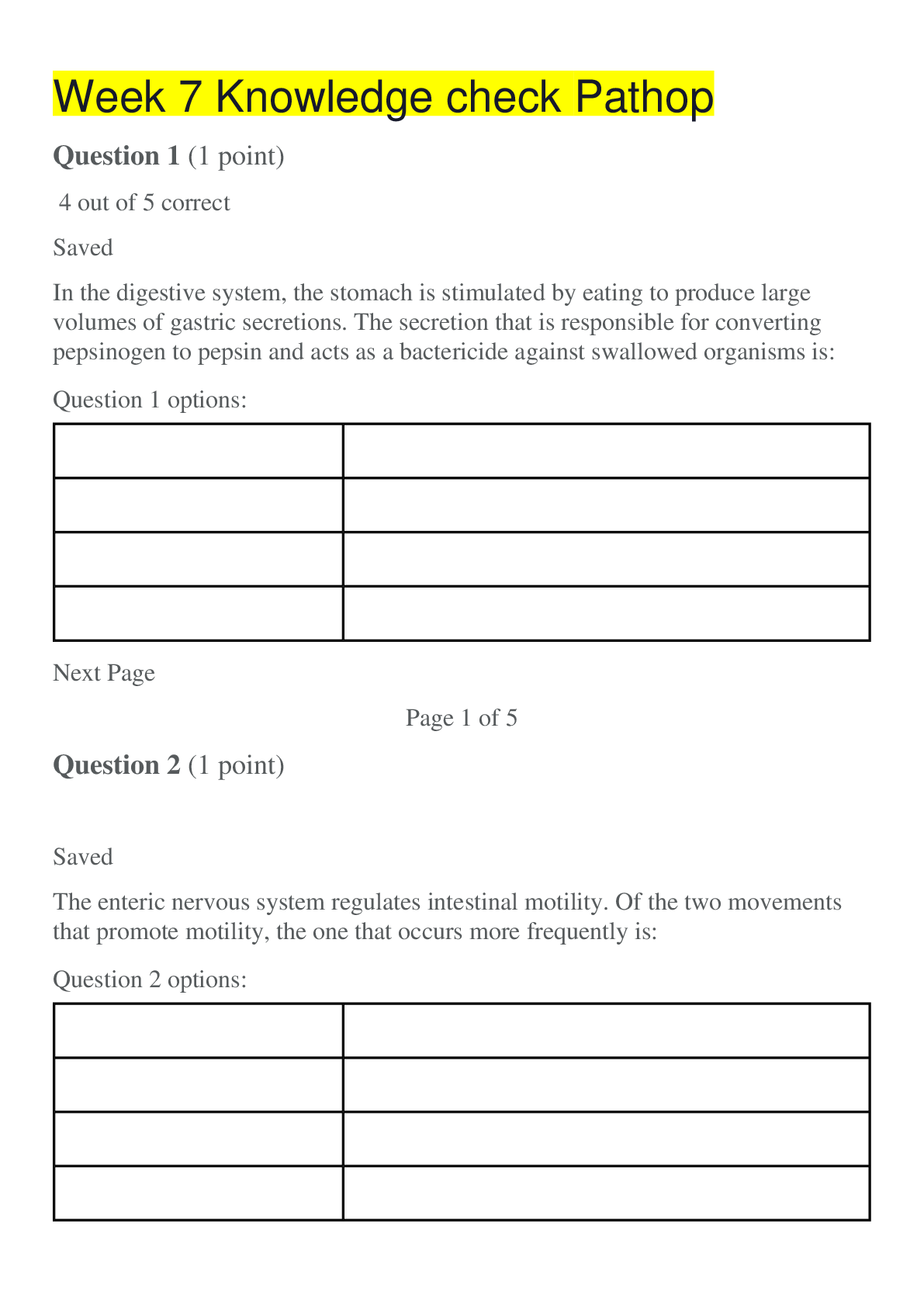
Reviews( 0 )
Document information
Connected school, study & course
About the document
Uploaded On
May 05, 2020
Number of pages
4
Written in
Additional information
This document has been written for:
Uploaded
May 05, 2020
Downloads
0
Views
54

